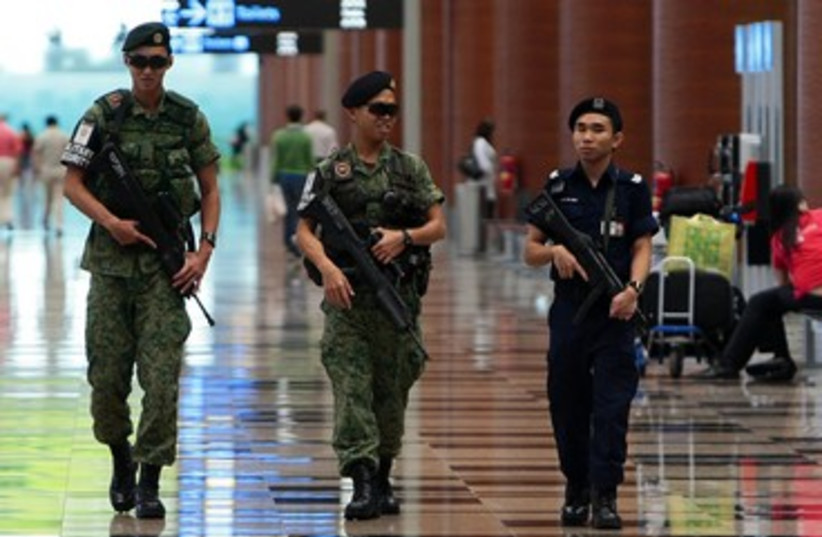Singapore has charged activists over pro-Palestinian letters, and over rallying people to urge the Singaporean Prime Minister to cut ties with Israel, the BBC announced on Thursday.
Singapore has strict rules when it comes to public demonstrations. According to Singapore's Public Order Act, all protesters must obtain a police permit before holding a public assembly if the purpose of the event is to "demonstrate support for or opposition to the views or actions of any persons, group of persons or any government."
As such, protesting against or for a foreign country in public is illegal without prior permission.
The incident involving pro-Palestinian activists happened in February, where, according to the BBC, three female activists led 70 people in a protest in central Singapore, near to the presidential compound.
Some protesters carried watermelon symbols, which have come to represent Palestine due to the similarity witht he color of their flag.

Protesters allegedly handed out 140 letters to staff near the presidential residence.
The activists - Annamalai Kokila Parvathi, Siti Amirah Mohamed Asrori and Mossammad Sobikun Nahar - did not have the necessary permit to organize the protest, and have not yet given indication of what they will plea.
The BBC reported that the three women could be fined up to $7,300 or jailed for up to six months.
When released from bail on Thursday, the women appeared to stand with their decision: the BBC said one of the women wore a keffiyeh, and another wore a t-shirt saying "justice now!"
Israel-Singapore
According to the BBC, conflicts have arisen in Singapore due to the country's "close relationship" with Israel despite its sizable Muslim population. According to a 2022 report by Pew Research Center, Muslims make up about 18% of the population.
There are long-standing ties between Israel and Singapore. The IDF was instrumental in helping Singapore develop its army; shortly after declaring idnepndence in 1965. The Singaporean Defense Minister Goh Keng Swee contacted former Israeli ambassador to Thailand, Mordecai Kidron, asking for help to build an army.
An Israeli military advisory team soon arrived in Singapore, and remained there for nine years, helping to organize, train and equip the fledgling army.
